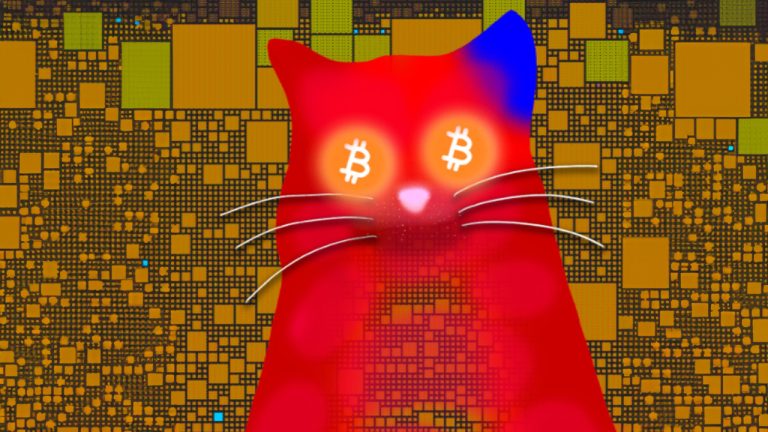
“If Washington D.C. can ruin something, it likely will. And it is certainly ruining the US Dollar,” said Senator Deevers after introducing the bill.
Republican senator for Oklahoma, Dusty Deevers, has filed legislation that would allow employees and residents in the state to opt to receive payment and salaries in Bitcoin (BTC) and enable vendors to accept BTC payments.
“In a time when inflation is eroding the purchasing power of hard-working Oklahomans, Bitcoin provides a unique opportunity to protect earnings and investments,” said Deevers after introducing the Bitcoin Freedom Act on Jan. 8.
“As Bitcoin continues to rise and the value of the dollar continues to be printed away in Washington D.C., Oklahoma must act to protect our people,” he added.

Metrics like the number of confirmed payments can be used to gauge investor activity on the Bitcoin network.
Daily Bitcoin payments have sunk to a yearly low, illustrating the period of illiquidity characteristic of the holiday season.
Confirmed Bitcoin (BTC) payments sank to 623,434 on Dec. 26, marking the lowest point of the year, according to data from blockchain.com
Confirmed Bitcoin payments per day. 1–year chart. Source: Blockchain.com

Huangzhou-based crypto mining chip maker Nano Labs saw its share price rise slightly after announcing it will start accepting Bitcoin as payment.
Shares in China-based crypto mining chip designer Nano Labs rose slightly after announcing it is now accepting Bitcoin as payment for its goods and services through a business account on Coinbase.
In a Nov. 11 statement, the Huangzhou-based crypto mining chip maker, which is listed on the Nasdaq, said the move was part of a “commitment to embracing the latest in financial technology” as demand increases for “digital currency transactions in the technology sector.”
Nano Labs said it was taking a “proactive stance in the evolving digital economy” as crypto “adoption continues to grow, particularly among businesses seeking efficient and secure cross-border transactions.”
 Barstool Sports founder Dave Portnoy has expressed his hesitation to buy bitcoin at its current price but is open to accepting the cryptocurrency as payment. He disclosed that he accepted bitcoin from crypto exchange Kraken as part of a sponsorship deal, highlighting his belief in the cryptocurrency. Dave Portnoy Embraces Bitcoin Payments Dave Portnoy, founder […]
Barstool Sports founder Dave Portnoy has expressed his hesitation to buy bitcoin at its current price but is open to accepting the cryptocurrency as payment. He disclosed that he accepted bitcoin from crypto exchange Kraken as part of a sponsorship deal, highlighting his belief in the cryptocurrency. Dave Portnoy Embraces Bitcoin Payments Dave Portnoy, founder […]

Bitcoin journalist Joe Hall tests Lugano, Switzerland, to see if it truly merits the title of the world’s most crypto-friendly town.
Bitcoin journalist Joe Hall recently visited Lugano, a Swiss city at the forefront of cryptocurrency payments. Known for its progressive embrace of digital currencies, Lugano has become a leading hub for Bitcoin transactions in recent years. Hall explored the city’s Bitcoin School, which educates the public on blockchain technology and cryptocurrency use, highlighting Lugano’s commitment to fostering a crypto-friendly environment.
During his visit, Hall interviewed industry giants like Adam Back, CEO of Blockstream, and Paolo Ardoino, CEO of Tether. These conversations provided insights into Bitcoin’s future and emphasized Lugano’s role as a center for crypto innovation.
A major focus of Hall’s trip was to investigate whether it is truly possible to survive in Lugano using only Bitcoin (BTC). He tested the practicality of Bitcoin payments for everyday expenses, from dining to shopping. His experience revealed that Lugano not only supports but actively encourages the use of Bitcoin, making it feasible to live a Bitcoin-based lifestyle.

The Bitcoin community came to Julian Assange’s aid, helping ensure the WikiLeaks founders’ safe and debt-free return to Australia.
WikiLeaks founder and prominent free speech advocate Julian Assange has developed strong connections with the Bitcoin community.
Both he and WikiLeaks have benefited from the unique properties of Bitcoin (BTC) as a cryptocurrency, as well as from its vibrant community.
Assange and WikiLeaks have also played a crucial role in boosting the relevance of Bitcoin, with the symbiotic relationship being mutually beneficial and contributing to Bitcoin and WikiLeaks’ survival and progress.

Senators Elizabeth Warren and Bill Cassidy are asking federal agencies about their technical capacity to combat crypto payments in the sale of child abuse material.
A crackdown on individuals buying and selling child sexual abuse material (CSAM) using cryptocurrencies is underway in the United States.
U.S. Senators Elizabeth Warren and Bill Cassidy want to ensure that federal agencies are fully equipped to track down crypto transactions linked to the sale of child abuse content.
In this effort to bring an end to CSAM, the Department of Justice (DOJ) and Department of Homeland Security (DHS) were asked to reveal their current technical capacity.

Block gets one percent of every conversion.
Jack Dorsey’s fintech firm, Block, recently announced that it was integrating a new feature for Square merchants that would allow them to allocate a portion of their daily sales to bitcoin, with on-demand payouts via CashApp.
Qualified merchants in the U.S. can currently allocate between one and ten percent of their daily sales to bitcoin. According to a TechCrunch article, the fiat funds are collected until the end of the day, at which point they’re converted to bitcoin and deposited into the user’s CashApp account. Merchants will be required to pay a one percent fee on each conversion.
Per a statement, Square says this move will empower small businesses and individual proprietors to participate in the global financial economy:

The South African Reserve Bank has declared goals for 2025 that it needs to pick up speed on.
The South African Reserve Bank has released a digital payments roadmap toward the goals of its Vision 2025, published six years ago.
Adoption of digital payment technologies in the country has been “sluggish,” the report said. It looked at ways to catch up to the vision, including plans for cryptocurrency and central bank digital currency (CBDC).
South Africa’s financial services sector, especially banking, is well-developed. Despite advances in digital payment technology, South Africans with lower and middle living standards remain disproportionately dependent on cash, the report found. User costs, low financial literacy, limited accessibility and lack of trust hinder progress, however.
 Sending bitcoin onchain remains a poor payment experience despite the hype surrounding the leading crypto asset, according to Taproot Wizards founder Udi Wertheimer. In a recent post-mortem of a high-volume sale using bitcoin, Wertheimer detailed several pain points with onchain payments including long confirmation times, lack of payment amount enforcement, high fees, and insufficient Lightning […]
Sending bitcoin onchain remains a poor payment experience despite the hype surrounding the leading crypto asset, according to Taproot Wizards founder Udi Wertheimer. In a recent post-mortem of a high-volume sale using bitcoin, Wertheimer detailed several pain points with onchain payments including long confirmation times, lack of payment amount enforcement, high fees, and insufficient Lightning […]